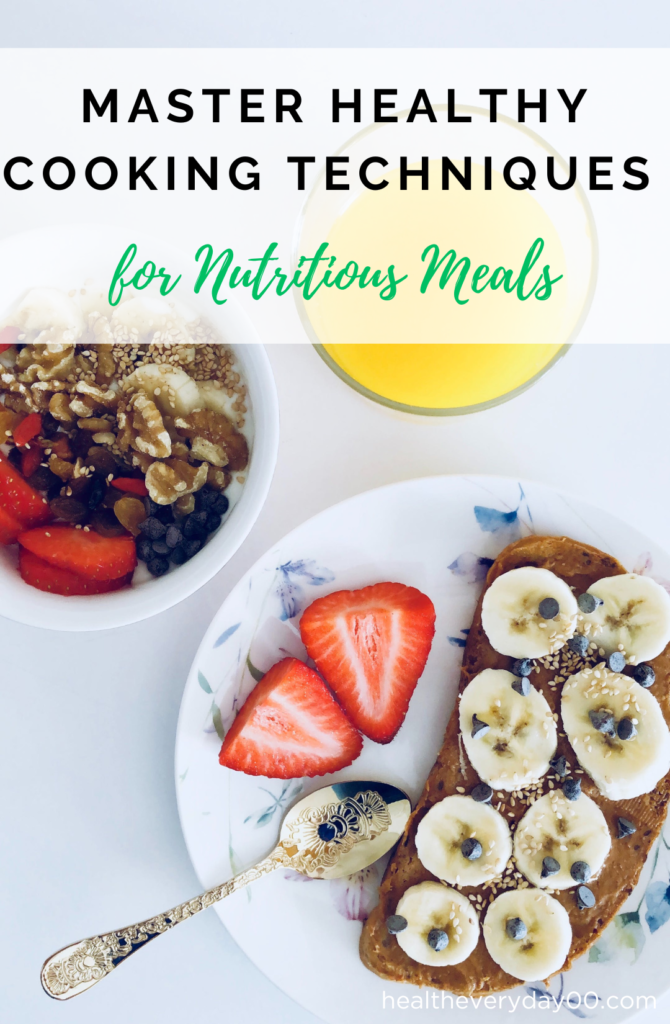Master Healthy Cooking Techniques for Nutritious Meals

- Master Healthy Cooking Techniques for Nutritious Meals
- Introduction
- The Importance of Healthy Cooking Techniques
- Understanding Nutrient Retention
- Essential Healthy Cooking Methods
- Choosing the Right Cooking Oils
- Optimizing Flavors with Herbs and Spices
- Balancing Macronutrients in Your Meals
- Smart Meal Preparation Tips
- Incorporating Superfoods into Your Diet
- Conclusion
- FAQs
Introduction
Cooking is not just a necessity; it’s an art that profoundly impacts our health. In a world bustling with fast-food options and hectic lifestyles, mastering healthy cooking techniques is crucial. This article delves into the significance of adopting nutritious cooking methods, understanding nutrient retention, and creating meals that are both delicious and wholesome.
The Importance of Healthy Cooking Techniques
Healthy cooking goes beyond mere meal preparation; it is a proactive approach to nourishing your body. By choosing the right cooking methods, you not only preserve the nutritional value of ingredients but also promote overall well-being.
Understanding Nutrient Retention
Before exploring specific cooking techniques, it’s essential to understand how different methods affect nutrient retention. Certain vitamins and minerals are sensitive to heat, and knowing how to preserve them ensures your meals remain a rich source of essential nutrients.
Essential Healthy Cooking Methods
Boiling and Steaming
Boiling and steaming are simple yet effective methods to cook vegetables while retaining their nutritional goodness. These techniques minimize the use of added fats, making them ideal for a calorie-conscious diet.
Grilling and Roasting
Grilling and roasting add a delightful smokiness to your meals. These techniques are perfect for lean proteins and vegetables, allowing them to develop unique flavors without excessive use of oils.
Sautéing and Stir-Frying
Quick and vibrant, sautéing and stir-frying are perfect for preserving the crunchiness of vegetables. Opt for heart-healthy oils like olive oil to enhance the taste without compromising nutritional benefits.
Baking and Broiling
Baking and broiling are excellent for retaining moisture in meats and fish. These methods use indirect heat, ensuring that the natural juices and nutrients are locked in.
Choosing the Right Cooking Oils
The type of oil you use greatly influences the healthiness of your dish. Opt for oils rich in unsaturated fats, such as olive oil or avocado oil, to promote heart health.
Optimizing Flavors with Herbs and Spices
Elevate the taste of your meals without resorting to excessive salt or sugar. Experiment with a variety of herbs and spices to add depth and complexity to your dishes.
Balancing Macronutrients in Your Meals
Proteins
Incorporate a variety of lean proteins such as poultry, fish, and legumes to ensure a well-rounded nutritional profile.
Carbohydrates
Choose whole grains and complex carbohydrates for sustained energy levels and a good source of dietary fiber.
Healthy Fats
Include sources of healthy fats like avocados, nuts, and seeds to support brain function and overall health.
Smart Meal Preparation Tips
Efficient meal preparation is key to maintaining a healthy diet, especially for those with busy schedules. Plan your meals in advance, batch-cook, and use versatile ingredients for quick and nutritious meals.
Incorporating Superfoods into Your Diet
Superfoods are nutrient powerhouses that can easily be integrated into your meals. Explore options like quinoa, kale, and blueberries to boost the nutritional content of your dishes.
Conclusion
Mastering healthy cooking techniques is an investment in your well-being. By understanding the impact of different cooking methods and making informed choices, you can create meals that are not only delicious but also promote optimal health. Experiment, enjoy the process, and savor the benefits of nutritious, home-cooked meals.



